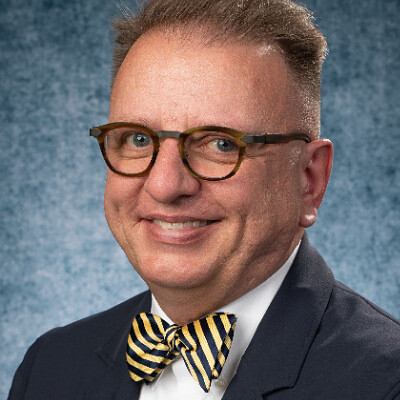This lightning talk describes training for interprofessional cohorts of advanced learners. We cover the rationale, pilot and full implementation of the program, training topics, and assessment. Finally, we share lessons learned and modifications from initial implementation.
The WHO (2010) called for preparing faculty to facilitate IPE. However, faculty feel ill-prepared to facilitate IPE (Ratka et al., 2017). Clinicians are not trained as educators or IPE facilitators. IPE Programs are challenged to hire faculty ready to facilitate IPE. We developed an innovative program training advanced learners to facilitate IPE. This addresses the Summit theme, as preparing future clinicians to also be good IPE facilitators is crucial to filling the gap for IPE-ready faculty, which will help us stay true to our North Star.
We will briefly describe our implementation so other programs could consider advanced learner training at their own institution:
Residents, fellows, and doctoral-level students from five academic health sciences programs were recruited to train and facilitate within an interprofessional education program. Advanced learners attend faculty development training with senior IPE faculty, either online or in person, and in their first year of training, receive five one-hour sessions that include didactics on IPE facilitation topics, discussion, and reflection. Advanced learners are paired with senior faculty to be mentored and co-facilitated. Advanced learners in the DrPH program receive additional training around mentoring the second year and mentor a new cohort.
We will describe our current evaluation plan:
An evaluation consisting of 10 4-point Likert Scale questions and two qualitative questions identifying strengths and opportunities for growth was developed from the AIR model of co-facilitation. Faculty mentors completed evaluations of their assigned mentee/co-facilitator. Advanced learners completed the same evaluation as a self-evaluation. The evaluations guided feedback and discussion as part of the mentoring process.
We will describe the outcome, significance, and lessons learned as part of our continuous improvement process:
Following the pilot year, modifications were made as part of the continuous improvement process. Four DrPH students were trained to facilitate online IPE programs, and 12 medicine, pharmacy, and PT students were trained in the onground program. Evaluations were high for all learners in the first year. Program developers created documents outlining expectations for mentors and mentees following the full implementation year and added the Interprofessional Education Facilitation Skills assessment tool. The program is expected to expand and include audiology and MSN students in 2026.
In support of improving patient care, this activity is planned and implemented by The National Center for Interprofessional Practice and Education Office of Interprofessional Continuing Professional Development (National Center OICPD). The National Center OICPD is accredited by the Accreditation Council for Continuing Medical Education (ACCME), the Accreditation Council for Pharmacy Education (ACPE), and the American Nurses Credentialing Center (ANCC) to provide continuing education for the healthcare team.
As a Jointly Accredited Provider, the National Center is approved to offer social work continuing education by the Association of Social Work Boards (ASWB) Approved Continuing Education (ACE) program. Organizations, not individual courses, are approved under this program. State and provincial regulatory boards have the final authority to determine whether an individual course may be accepted for continuing education credit. The National Center maintains responsibility for this course. Social workers completing this course receive continuing education credits.
The National Center OICPD (JA#: 4008105) is approved by the Board of Certification, Inc. to provide continuing education to Athletic Trainers (ATs).
This activity was planned by and for the healthcare team, and learners will receive Interprofessional Continuing Education (IPCE) credit for learning and change.


Physicians: The National Center for Interprofessional Practice and Education designates this live activity for AMA PRA Category 1 Credits™. Physicians should only claim credit commensurate with their participation.
Physician Assistants: The American Academy of Physician Assistants (AAPA) accepts credit from organizations accredited by the ACCME.
Nurses: Participants will be awarded contact hours of credit for attendance at this workshop.
Nurse Practitioners: The American Academy of Nurse Practitioners Certification Program (AANPCP) accepts credit from organizations accredited by the ACCME and ANCC.
Pharmacists and Pharmacy Technicians: This activity is approved for contact hours.
Athletic Trainers: This program is eligible for Category A hours/CEUs. ATs should claim only those hours actually spent in the educational program.
Social Workers: As a Jointly Accredited Organization, the National Center is approved to offer social work continuing education by the Association of Social Work Boards (ASWB) Approved Continuing Education (ACE) program. Organizations, not individual courses, are approved under this program. State and provincial regulatory boards have the final authority to determine whether an individual course may be accepted for continuing education credit. The National Center maintains responsibility for this course. Social workers completing this course receive continuing education credits.
IPCE: This activity was planned by and for the healthcare team, and learners will receive Interprofessional Continuing Education (IPCE) credits for learning and change.
Learners can claim CE credit by completing the Daily Evaluation.


